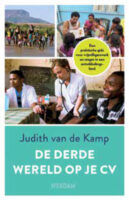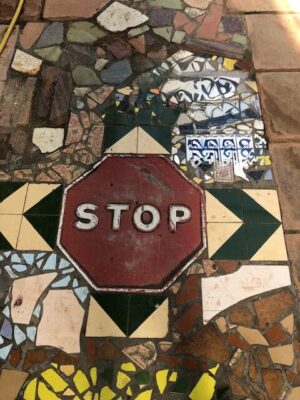Main content
‘Everything is for a reason’
One could summarise Judith van de Kamp’s book in the above words. Often things are not what they appear to be at first sight. Don’t take things for granted; realise that your version of the facts is not the norm.
It all started with the article ‘Doctor Tourist‘ in a Dutch newspaper in 2006, in which Dutch ‘tropical’ doctors raised their concerns about the increasing popularity among Western health workers of travelling and working in a low- or middle-income country (LMIC) for a short period of time: ‘A growing number of inexperienced Western doctors go to a developing country to “do good” in Asia and Africa. They act superior and paternalistic and do not discuss matters with the local doctors. […] They think they know better and, as a result, they carry out operations with no follow-up.'[1] Judith – who had just started a master’s in medical anthropology and sociology – was astounded by the article and decided to investigate this phenomenon further in her studies. Her academic interest and personal involvement first brought her to Ghana for her master’s thesis and a couple of years later to Cameroon for her research PhD.[2]
The setting for her ethnographic research was a hospital in rural Cameroon which received many short-term Western health workers and students each year. This research formed the basis for ‘De derde wereld op je cv‘, a practical guide for (young) people preparing themselves for short-term work in a LMIC. Though her PhD thesis offers a very interesting read on local and Western health workers’ public and hidden transcripts (term used to describe the interactions between people, verbal and non-verbally) as well as their relationships and power dynamics, the book is more accessible. It takes you on a journey, starting from the first plans to work abroad, the experiences in the field, and finally the difficulties of settling in back home again. It perfectly combines theoretical notions with practical information, and the book is filled with illustrative examples from van de Kamp’s personal experiences in the field. It’s a pleasure to read, especially because the tone of voice is not condescending. On the contrary, the author speaks with a genuine concern for those at the receiving end, who have to deal with foreigners wanting to ‘do good‘. In 2018, a record number of young people embarked on a journey to developing countries. Though difficult to estimate, research from 2008 indicated there were already some 1.6 million volunteer ‘tourists’ travelling to LMICs. Over the past decades, a whole new industry has evolved, with unfortunately many organisations predominantly focusing on the supply side of the deal.
We are in the middle of this reality and, instead of fighting windmills, van de Kamp chose the role of counsellor. How do you deal with efforts to ‘make a difference’, when in fact it may turn out that you are replacing a local expert simply because you bring in hard needed cash for the hospital? Start valuing local resources instead of promoting your own solutions which are often not attuned to local circumstances or sustainable in the long term. In her book, van de Kamp presents the reality ‘behind the smiles‘ and offers tips to ensure that the learning curves are reciprocal. In a very subtle way, she makes a plea for being humble and open-minded. The less you want to make a difference, the more likely you actually will.

Author: Judith van de Kamp
Published by: Nieuw Amsterdam
224 pages, paperback, € 17.99
Full title: De derde wereld op je cv. Een praktische gids voor vrijwilligerswerk en stages in een ontwikkelingsland. (The third world on your CV: a practical guide for (young) people preparing themselves for short-term work in a LMIC.)
References
- De Visser, E (2006). Arts-toerist biedt vaak matige hulp: oud-tropenartsen pleiten voor een gedragscode. De Volkskrant (translated by J. van de Kamp in her thesis).
- Van de Kamp, J (2017). Behind the smiles. Relationships and power dynamics between short-term Westerners and Cameroonian health workers in a hospital in rural Cameroon. PhD thesis.



















































